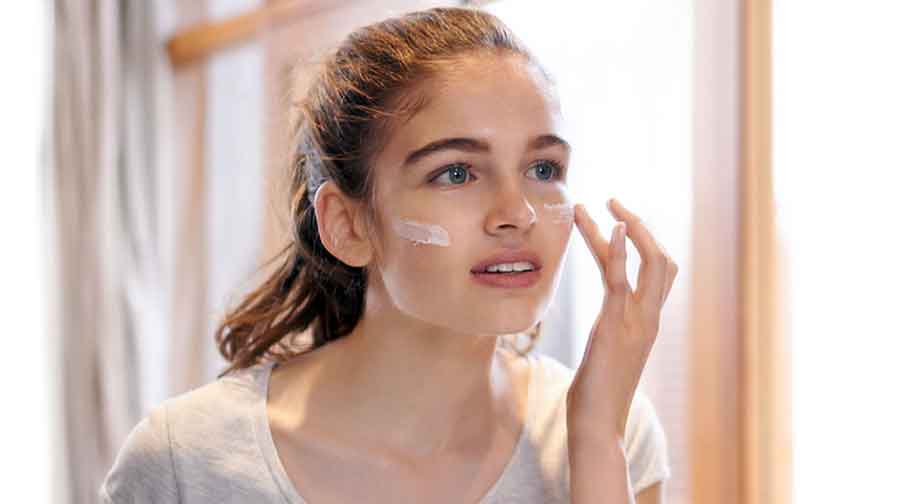Table of Contents
1. Understand how the summer sun impacts your skin.
It’s important to know how the sun’s rays impact your skin, especially when you’re seeking to cut through the hype on cosmetic labels.
The following basics should assist your understanding:
- Ultraviolet A (UVA): The invisible wavelength of the sun, this one penetrates the dermis, your skin’s deepest layer. Sun damage can activate free radicals and promote skin aging.
- Ultraviolet B (UVB): This wavelength penetrates the skin’s upper layer, the epidermis. These rays cause sunburn, allergic reactions and skin cancers. After six times of being burned, the skin has double the risk of developing a fatalmelanoma.
- Ultraviolet C (UVC): Generally, these rays are filtered by the ozone layer and these re the most damaging rays.
- Scratch Test (ST): Sometimes, if you scratch your skin with a back of your heel, the test will reveal your sensitivity.
- Infra-red (IR): This is the “heat” from the sun and too much can negatively impact collagen, elastic and your immune system.
2. Wear sunscreen but only after assessing the need and doing your own research. Not all sunscreens are made alike – some provide a physical barrier (minerals) while others provide a chemical barrier that absorbs ultraviolet rays.

There is no consensus that sunscreens work and there is no proof that higher SPF sunscreens are any better than lower level SPF and they may simply contain more chemicals, thereby increasing your exposure.
And getting a false sense of security about your ability to stay in the sun all day because you’re wearing sunscreen is unhelpful and can result in damaged skin – indeed, some scientists worry that this false sense of security coupled with inferior UVA focused sunscreen use has actually promoted skin cancers in recent times.
Thus, “how” you treat sunscreen as a skin protectant is not very important – sunscreen should be used only as one part of your approach to guarding your skin during the summer; it cannot be the only method and it isn’t foolproof.
- If sunscreens trigger sensitivities, breakouts and other skin problems for you, switch from chemical sunscreens to mineral sunblocks (zinc oxide and titanium dioxide) to see if this improves things for you.
- If you have oily skin, don’t use an SPF higher than 20; doing so risks overloading your skin with chemicals and more oil.
3. Stay out of the sun between the hours of 10am and 3pm.
The hottest part of the day during the summer is the most damaging time. Don’t stay out in the sun for long periods of time around the hottest hours; the longer you’re outside, the longer your skin is exposed to the radiation. Get your exercise and activities done in the earlier, cooler hours, or in the later cooler hours of the day.
4. Wear protective clothing over your skin.
A lot of clothing in outdoor stores and fashion stores has a UV protection rating and some clothes are impregnated with a UV-absorbing colorless dye. The UV protection rating is a good indicator of how clothing can act as an excellent barrier against the sun’s rays.
Cover up as much skin as you can, using lightweight fabrics when it’s really hot and uncomfortable. Choose fabrics that won’t itch, scratch, or overheat you and prefer light colors over dark ones, to keep the heat level down.
a) Wear a hat. Your facial skin will benefit enormously from a permanent ring of shade over it in the heat of the sun.
b) Wear sunglasses to protect your sensitive eye skin (and eyes). Eyes are prone to melanomas and cataracts, and the sensitive skin around your eyes is prone to fast aging.
6. Give your skin a break.
By watching the weather over summer, you can work out the days when you won’t need to slather on the chemicals, such as when it’s pouring with rain or it’s a very overcast day. Be sure to pop on your hat and cover clothing as usual because UV rays still penetrate the clouds; you can at least allow your skin a break from the sunscreen.
- If you’re going on holiday and you’re driving, then take your makeup off before you leave as it gives your skin time to breathe.
- Leave your makeup off as often as possible while on vacation. This is a great opportunity to let your skin breathe and be free from the chemicals in cosmetics.
7. Avoid spraying perfume on your skin in the sun.
The psoralen in perfume (especially in citrus perfumes) can permanently stain your skin when they react with the sun. During the summertime, it is recommended that you spritz your clothes with your fragrance rather than your skin.
8. Drink plenty of water.
Hydrated skin is better skin and it’s easy for skin to become parched during the summer months. Dehydration results in dry skin, frown-lines, spots, a sluggish complexion and a lack of “glow”. Drink water regularly throughout the day, preferably between meals (drinking during meals can dilute the nutrients from food). Water will both hydrate your skin and flush out toxins that can mar your complexion.
9. Eat healthy foods.
A healthy skin comes from eating well and summer is the ideal time to make dietary changes for the better. Cut down on sugar and refined processed foods which create unbalanced blood sugar levels and therefore contribute to premature aging. Eat plenty of fruits and vegetables, in salads, steamed, raw, or as part of a recipe dish.
Choose from the rainbow of fruit and vegetable colors to ensure that you’re getting all the antioxidants and nutrients your skin needs. A diet rich in flavonoids will help to ensure a healthy and glowing skin. And include whole grains in your daily diet too, including the ancient grains.
n Yogurt is a healthy addition to your diet; just be sure it’s sugar-free and natural.












































